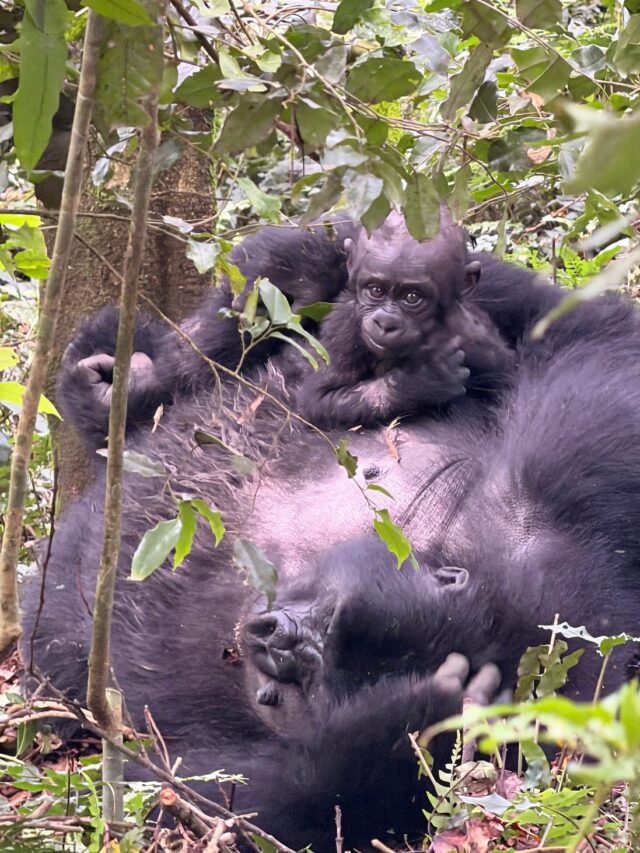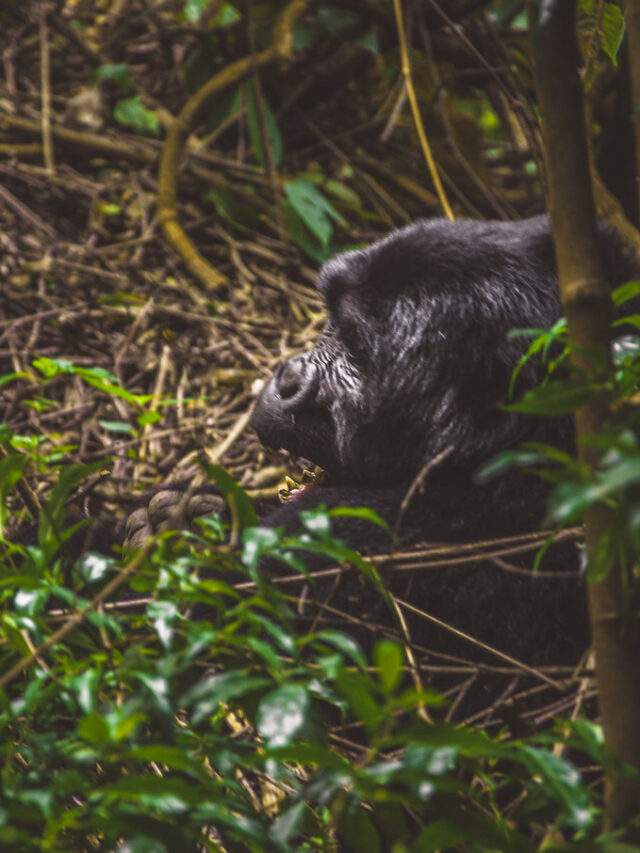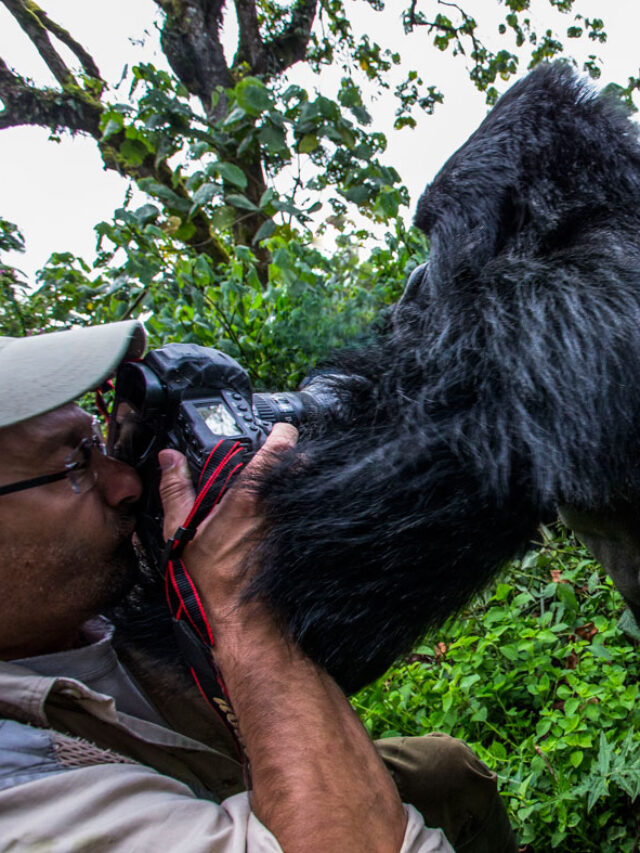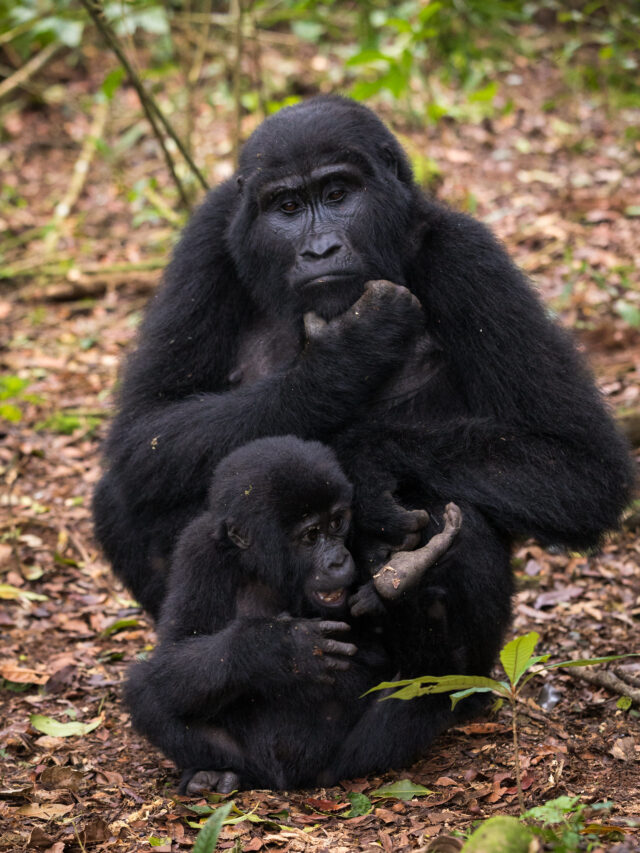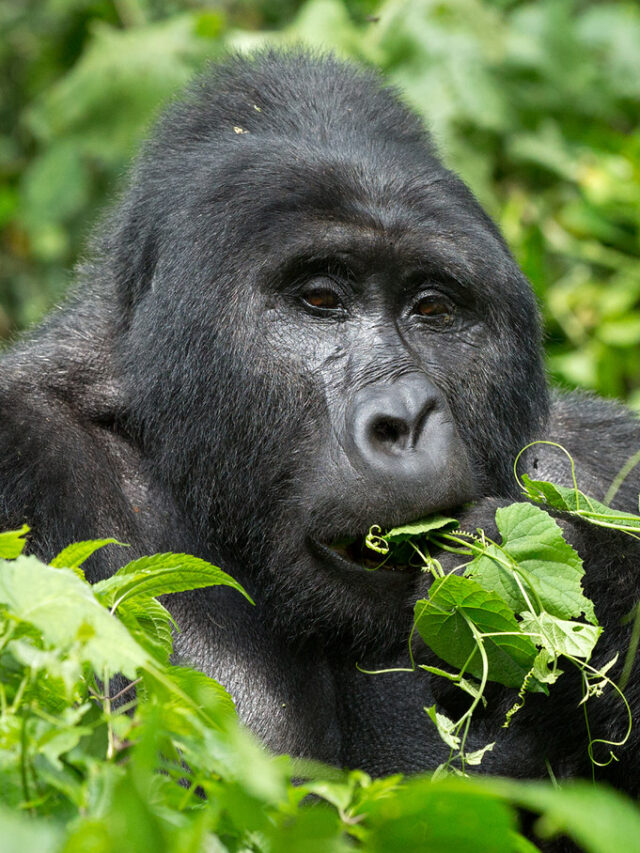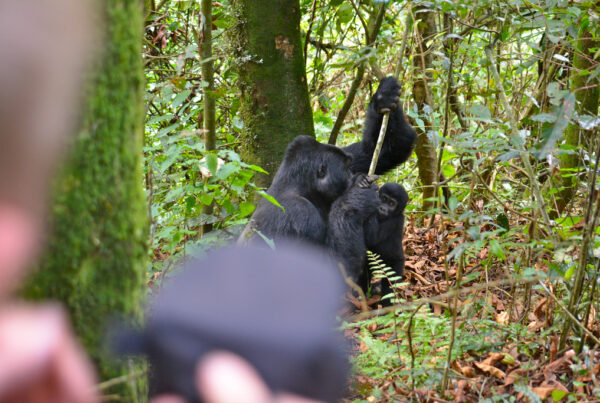Duties of a Silverback in a Gorilla Group: The Weight of Leadership in the Wild
More Than a Leader—The Silverback Is a Father, Guardian, and Silent Authority
In the heart of Africa’s ancient rainforests, the gorilla family moves as one—feeding, grooming, playing, and resting. But at the center of this quiet rhythm is a figure who does more than simply belong. The silverback gorilla, marked by his impressive size and the silver saddle of fur across his back, is the backbone of the group, the decision-maker, and the emotional core of gorilla society. His role is not taken—it is earned through age, strength, and wisdom.
Duties of a Silverback in a Gorilla Group go beyond dominance; they speak to a deep, almost human sense of responsibility, protection, and sacrifice.
1. Protection of the Group
Above all else, the silverback’s primary duty is to protect his family group from danger—whether it’s a predator, another aggressive male, or any perceived threat. When trekking in Bwindi or Volcanoes National Park, if you see a silverback watching you from behind a wall of leaves, know that he is measuring risk, reading body language, and preparing to act if needed. He positions himself between danger and his group, often standing tall, beating his chest in thunderous warning, or charging forward to intimidate an enemy.
If an actual confrontation occurs—which is rare—the silverback can become a fearsome defender, using his strength, agility, and loud vocalizations to ward off attackers. He is not quick to violence, but if provoked, he will not hesitate to risk his life to keep his group safe. That kind of protection isn’t just physical—it’s deeply emotional. He feels the weight of every life behind him.
2. Decision-Making and Movement Control
Each day in a gorilla’s life is a journey—from feeding spots to nesting sites, from riverbeds to sheltering trees. The silverback decides when the group wakes, when it moves, where it travels, and when to rest. These decisions are not made randomly. They are based on years of memory, knowledge of seasonal food availability, and an understanding of threats in the area.
He also controls the pace of movement—often stopping for the infants, slowing down for the elderly, and choosing paths that favor the safety and unity of his group. You can think of him as the silent navigator of the forest, guiding a dozen lives through a maze only he truly knows.
3. Maintaining Social Order
Gorilla groups, or troops, are complex social systems. They consist of adult females, infants, juveniles, and sometimes subordinate males or blackbacks. As the dominant male, the silverback ensures harmony among all members. He breaks up fights, disciplines unruly juveniles, mediates tension between females, and ensures that grooming and feeding stay orderly.
He rarely uses force—his presence is enough. Most gorillas obey the silverback not out of fear, but out of respect. He’s the emotional compass of the group, and his calm or agitation sets the tone. When he is relaxed, the group is at ease. When he’s alert, the forest holds its breath.
4. Fatherhood and Emotional Bonding
Though a silverback may mate with multiple females in his troop, he is more than just a breeder. He is a father figure, deeply involved in the lives of the young. You’ll often see him cradling babies, letting toddlers climb over him, or gently playing with juveniles. This isn’t incidental. It is a vital part of gorilla emotional development.
Infants often seek him out for security, especially during moments of conflict or fear. In some cases, even unrelated young gorillas in a newly formed group will gravitate toward the silverback for emotional safety. This powerful paternal role shows that leadership in gorilla society includes not just dominance, but nurture, affection, and care.
5. Reproduction and Gene Continuity
As the dominant male, the silverback is usually the only one who mates with the adult females in the group. This prevents conflict among subordinate males and ensures strong, consistent leadership across generations. His genetics are passed down through multiple offspring, but more importantly, his behavioral legacy—the way he leads, protects, and teaches—shapes the personalities of the next generation.
This selective breeding is also crucial for conservation. In small, endangered populations like the mountain gorillas of Uganda and Rwanda, ensuring strong, healthy alpha males helps strengthen the entire gene pool. His presence is not just meaningful now—it’s an investment in the survival of the species.
6. Emotional Regulation and Group Stability
Perhaps one of the most underestimated but deeply important duties of a silverback is emotional regulation. Gorillas are emotional beings. They experience stress, grief, jealousy, and joy. A good silverback keeps the emotional energy of his group in balance. His posture, his vocalizations, even his subtle glances can calm an anxious mother or stop a juvenile from acting out.
In times of loss—like the death of a baby or an elder—it is the silverback who holds the group together. In times of joy, like the birth of a new infant, it is the silverback who welcomes the celebration. His emotional maturity becomes a living example for every member of the group.


